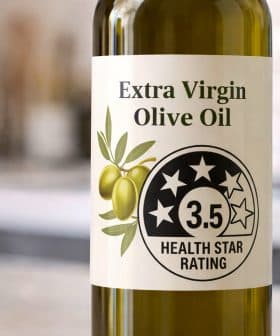Topical Olive Oil Prevents Pressure Ulcers in Immobilized Patients
Topical application of extra virgin olive oil is a more cost effective alternative for preventing pressure ulcers in immobilized patients with the same beneficial outcomes as commonly used skin care products.
Pressure ulcers are common skin wounds that can lead to necrosis and greatly impact quality of life, particularly in immobilized patients. A study found that using olive oil as a topical treatment for pressure ulcers was just as effective as more expensive hyperoxygenated fatty acid products, providing a cost-effective alternative for prevention and treatment.
Pressure ulcers are a common skin issue that causes healthcare, economic, and social burdens. The ulcers can appear anywhere on the body, but because they are more common in immobilized patients, particularly the elderly, they are more frequently seen on the sacrum, hips and heels.
A pressure ulcer is a skin lesion, a wound that is produced secondary to inadequate blood supply to the area. The pressure accumulates when the soft tissue is compressed between two planes — for example, the hospital bed, the soft tissue, and the weight of the patient’s hip bone. The ulcers can lead to necrosis (death of body tissue) and therefore can also affect the joints, bones, and greatly impact quality of life.
Strategies to prevent pressure ulcers include the assessment of risk factors, the use of support surfaces, repositioning the patient, maintaining optimal nutritional status, hydration and skin care. The pharmaceutical industry has launched skin care products that contain oils derived from hyperoxygenated fatty acids (HOFA) to treat pressure ulcers.
Although there are studies showing the effectiveness of HOFA skin care products, there is a high cost, particularly when ongoing treatment is required. In a study, published in PLOS ONE, Lupiañez-Perez and Colleagues sort to determine whether the use of olive oil could achieve similar beneficial outcomes for immobilized patients.
The authors report that, “Olive oil has between 330 to 500 mg of polyphenolsperkilogram of fat, and under 20mEq of peroxide perkilogram of fat. It is compatible with human tissues what converts it in an ideal product for topic use.” Not to mention, oleic acid, natural antioxidants such as hydroxytyrosol and tyrosol and high resistance to oxidative processes, all of which inspired the hypothesis that olive oil could be a more cost-effective treatment for pressure ulcers with similar benefits to HOFA skin care products.
According to the authors, the subjects selected for the 16-week follow-up trial were similar to “the subjects examined in HOFA efficacy trials.” In the 16 week follow up trial, the incidence of stage 2 pressure ulcers was measured as the main outcome in 915 patients (average age of patients 80.56 years) who were randomized to either, HOFA application or “two applications daily of the olive- oil-based formula, to the skin areas of the sacrum, hips and heels” in the form of 0.33 ml in each spraying. The liquid spray contained 97 percent extra virgin olive oil and 3 percent hypericum perforatum and peppermint.
The authors conclude that the “results obtained confirm the non-inferiority of the olive oil treatment; there were no differences exceeding the lower limit of the confidence interval and thus olive oil therapy achieves an effective prevention of pressure ulcers in these circumstances.”
For example, the specific values for the sacrum with 8 subjects in either group were 2.55 percent for olive oil and 3.08 percent for HOFA. It is also important to note that previous studies on HOFA have never been conducted beyond one month. Therefore, the length of this study provides clinical significance for the effectiveness of olive oil as a topical agent.
As the authors suggest, “The lower cost of the product makes it more accessible to the population in general and to the healthcare system, and offers a viable alternative to standard HOFA treatment promising a significant reduction in pharmaceutical expenditure and alleviating the burdens placed on health care personnel and caregivers, by reducing the incidence of pressure ulcers.”









